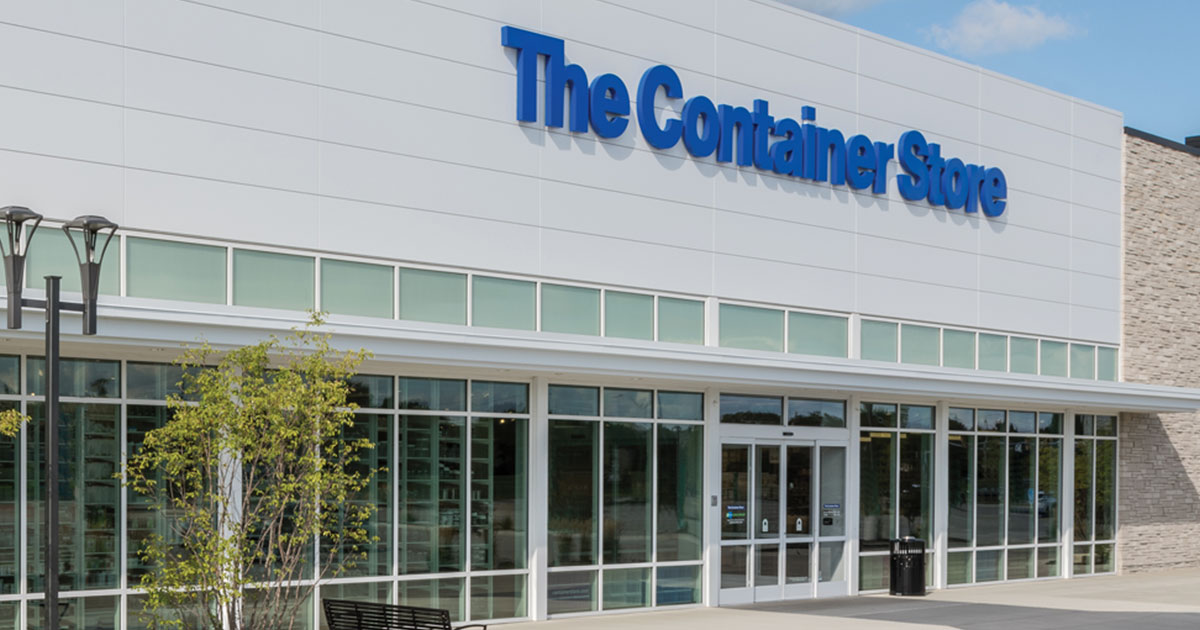The Container Store has officially filed for Chapter 11 bankruptcy protection as of Sunday, aiming to rescue the business and secure its profitability moving forward.
Wall Street analysts had predicted the move as the retailer’s financial difficulties escalated. A Texas-based company operates 103 stores spanning 34 states and the District of Columbia, specializing in storage products and custom closets.
The Container Store has stated that this does not signify the conclusion of the retailer’s operations. The company has announced that it has filed for voluntary protection under Chapter 11 in the bankruptcy court for the Southern District of Texas. This move is part of its strategy to “implement a recapitalization transaction to bolster its financial position, fuel growth initiatives, and drive enhanced long-term profitability.”
In a significant development, over 90% of the company’s lenders have expressed their agreement to back its bankruptcy plan. This plan is set to secure $40 million in new financing, facilitate a reduction of at least $45 million in debt, alleviate debt payments, and extend the timeline for settling outstanding debts.
The Container Store may be facing a potential bankruptcy, raising concerns about its future in the retail sector.
The company announced that it will maintain its regular operations and continue to offer products and in-home services to customers “without disruption.” Furthermore, the stores and the website will “continue to operate as normal.” The company confirmed that all customer deposits and orders will be honored and delivered as usual.
A source familiar with the situation informed FOX Business that the process “enables companies to renegotiate their lease terms to better align their store footprint with market realities and business needs.””According to the source, the company may be compelled to shut down certain locations if it does not secure significant rent reductions.”
CEO Satish Malhotra stated, “The Container Store is here to stay,” emphasizing that the bankruptcy process will facilitate the company’s business advancement and enhance its capabilities.
Malhotra expressed enthusiasm regarding the future of their custom space offerings, noting their continued strength. “The company has announced its intention to uphold a robust workforce and is dedicated to providing an outstanding experience for customers during the recapitalization process and well into the future.”
A retailer recognized for its organizing solutions has quickly risen to prominence, largely due to the success of Netflix’s “Tidying Up” series, which debuted in 2019.
Today, the situation involves a struggling housing market alongside an increasing presence of more affordable options. Earlier this month, The Container Store’s shares faced a halt on the New York Stock Exchange as the company geared up for a delisting, having dropped below the NYSE’s continued listing standard. The standard mandates that listed companies uphold a minimum average global market capitalization of $15 million over a span of 30 consecutive trading days.
Eric Snyder, a partner at Wilk Auslander LLP in New York City, previously stated to FOX Business that the current housing market conditions and increasing competition have rendered “this brick-and-mortar company… an unnecessary purchase.”
According to Snyder, the company is facing challenges as it does not gain from holiday sales, given that its products are not viewed as discretionary purchases.
“Due to this situation, along with the withdrawal of a $40 million financial support from Beyond, bankruptcy and an expedited sale have become the sole alternatives,” Snyder stated. Beyond Inc., the parent company of Bed Bath & Beyond and Overstock.com, has withdrawn from a $40 million investment deal with the Container Store Group that was intended to establish a new partnership.
Beyond had intentions to invest in the company and leverage a portion of the Container Store’s real estate to display its range of kitchen, bath, and bedroom products, which would feature co-branding. Beyond Inc. Executive Chairman Marcus Lemonis expressed concerns last month regarding The Container Store’s ability to secure an agreement with its lenders that would satisfy the financial requirements of the deal.
Latham & Watkins LLP acted as legal counsel for The Container Store. Houlihan Lokey acted as the financial adviser for the investment bank. FTI Consulting acted as the financial and communications advisor, while A&G Realty took on the role of real estate advisor.





